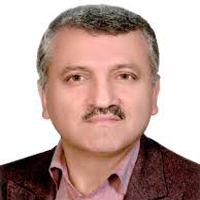Minimizing the total tardiness and makespan in an open shop scheduling problem with sequence-dependent setup times
We consider an open shop scheduling problem with setup and processing times separately such that not only the setup times are dependent on the machines, but also they are dependent on the sequence of jobs that should be processed on a machine. A novel bi-objective mathematical programming is designed in order to minimize the total tardiness and the makespan. Among several multi-objective decision making (MODM) methods, an interactive one, called the TH method is applied for solving small-sized instances optimally and obtaining Pareto-optimal solutions by the Lingo software. To achieve Pareto-optimal sets for medium to large-sized problems, an improved non-dominated sorting genetic algorithm II (NSGA-II) is presented that consists of a heuristic method for obtaining a good initial population. In addition, by using the design of experiments (DOE), the efficiency of the proposed improved NSGA-II is compared with the efficiency of a well-known multi-objective genetic algorithm, namely SPEAII. Finally, the performance of the improved NSGA-II is examined in a comparison with the performance of the traditional NSGA-II.
-
Multi-Objective Mathematical Modeling for a Charging Stations Location-Routing Problem of Heterogeneous Electric Vehicles with Time Windows
Azra Ghobadi, Reza Tavakkoli-Moghaddam *, Mohammad Fallah, Hamed Kazemipour
Journal of Transportation Research, -
Toward sustainability in designing an agricultural supply chain network: A case study on palm date
Abdolreza Hamdi-Asl, Hossein Amoozad-Khalili *, Reza Tavakkoli-Moghaddam, Mostafa Hajiaghaei-Keshteli
Scientia Iranica, Sep-Oct 2024



